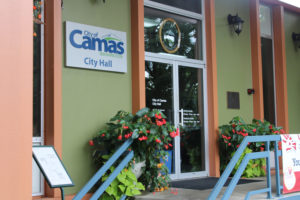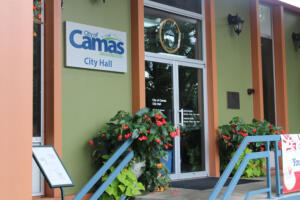Camas city officials this week continued to debate new revenue sources proposed in Camas Mayor Steve Hogan’s 2025-26 budget as a way to maintain the City’s current service levels, add new supervisory positions to the Camas Police Department, help cover costs associated with Camas’ network of streets and preserve the City’s celebrated AAA credit rating.
“We battled for years to put together a AAA rating,” Hogan told Camas City Council members Monday evening, during the Council’s Nov. 4 workshop. “We’re there now, but our tax base has dropped so substantially that Moody’s and Standard and Poor’s (credit rating agencies) will be able to see quite quickly if we as a Council don’t take steps to maintain what we have in our general fund reserves.”
Hogan reminded the Council that the City’s AAA credit rating saved the City $1.5 million when it issued its 2023 general obligation bond that helped finance parks redevelopment, facilities construction, street construction and other capital improvements.
“That rating saved us a hell of a lot of money,” Hogan said. “And will have saved us a hell of a lot of money down the road.”
Hogan also warned Council members that the City will need to decide which areas of the budget they plan to cut if they cannot increase revenues enough to meet the City’s current expenses.




